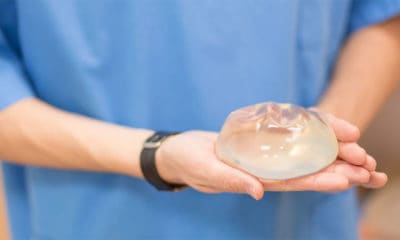There is no way around it: surgery results in scars. Whenever an incision is made, the body heals with a scar. It’s a four letter word that causes many people to cringe, and a good many more to hesitate and even decide against plastic surgery.
A good scar, however, will continue to fade as the wound heals, until it is hardly even noticeable. Rather than relying on time to heal all of your wounds, there are several things within your power (and the power of your surgeon) that can be done from the time of surgery onward to help you achieve the best, least visible, scar possible.
Minimizing Scars During Surgery
Plastic surgeons, more than any other surgeons, are known for their skill when it comes to closing up wounds in the operating room. They are trained in determining not only the best location for the scar, but also the best method to close the tissues to allow them to heal optimally. “There’s a lot of things we can do to help minimize a scar,” shares board certified plastic surgeon Dr. Charles Messa III.“The number one thing is using a very meticulous suture closure.”

Other surgeons may quickly close a wound using staples or heavy sutures. A well trained plastic surgeon, on the other hand, will take the time required to close an incision in multiple layers. This reduces the tension present at the incision line. Less tension at the superficial layers will typically produce better scars in the long run.
The type of sutures that are used play an important role in how the scar will heal. In the strength layer of the skin, known as the dermis, Dr. Messa uses a very fine monofilament suture. These thin sutures glide easily through the tissues, providing much needed short-term support before being quickly and fully absorbed by the body.
Minimizing Scars While the Body Heals
It’s important to treat your body well as it recovers after surgery. Proper nutrition will provide your body with the fuel it needs to do a great job healing. “Having a diet rich in omega 3 fatty acids helps the skin,” shares Messa, who also advises his patients to avoid the sun and smoking cigarettes.
Drugstore shelves are filled with creams and gels that promise to work wonders on scars. While there is no magic cream that works to erase a scar completely, studies have shown that topical application of silicone, either in gel form or in the form of a silicone sheet, does help reduce scars.
4 Ways to Minimize Scars as the Body Heals:
- Avoid Sun Exposure
- Don’t Smoke
- Eat a Diet Rich in Omega 3 Fatty Acids
- Use Silicone Scar Gels or Silicone Sheeting
Treating Bad Scars
Even when you do everything you can do minimize a scar, there is still no guarantee that your scar will heal well. There are several different qualities of a scar that may cause it to be categorized as a bad scar. The incision line may be thick, bumpy or raised. The color of the scar may be red or brown, making it more visible. When a scar takes on these qualities, there are several treatment options available that may help improve the appearance. “When the scars are thicker, you can use injection therapy,” shares Messa. “Kenalog, which is triamcinolone, a steroid, can reduce the thickness of the scar.”
Laser treatments are also used to help patients achieve less noticeable scars. Fractionated laser resurfacing such as Fraxel and vascular lasers such as Vbeam help remove red, brown and dark pigments out of bad scars.

Bottom Line: It’s Worth the Trade Off!
Whether you are interested in a breast lift, tummy tuck or some other plastic surgery procedure, scars are a trade off you must accept in order to achieve the degree of improvement that only surgery can provide. It’s not uncommon for a patient to tell Dr. Messa that they want a tummy tuck, but they don’t want a big scar on their abdomen. He, in turn, explains to them that the scar will not be any thicker than a very thin stretch mark, and it can be easily hidden in the bikini line.
“These are patients that weren’t wearing a bikini because of how their abdominal area looked. Now they’re putting on a bikini with a very fine scar,” says Messa. “I’ve never had anyone come back and say they wouldn’t have done this surgery because of the scar once they see the post operative results.”















Facebook
Twitter
Instagram
YouTube
RSS